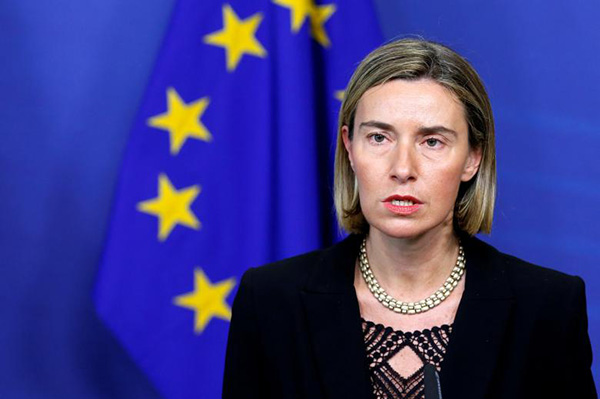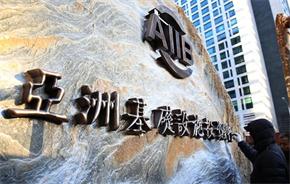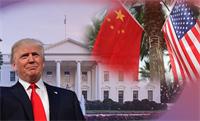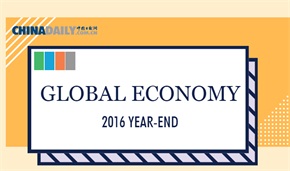China can help boost European Union's economic growth
By Fu Jing (China Daily) Updated: 2017-02-21 07:43
 |
|
European Union foreign policy chief Federica Mogherini addresses a joint news conference with Libya's Prime Minister Fayez al-Sarraj (unseen) at the EU Commission headquarters in Brussels, Belgium February 2, 2017.[Photo/Agencies] |
Many European leaders have run out of words to describe the situation in the European Union. But there seems to be light at the end of the tunnel.
On Feb 13, the European Commission updated its economic forecast, saying all the 28 EU member countries will register growth in 2016-17 and 2017-18, although the overall pace of their growth will be less than 2 percent.
This is the first time in a decade that all EU members can expect their economies to grow, although the EU is still "navigating choppy waters", according to a report. But that even the Greek economy is expected to grow at 2.7 percent and 3.1 percent in 2017 and 2018 is a promising sign for the EU.
The forecast is extremely encouraging for the EU, which has been fighting against economic governance loopholes, stagnation and fluctuations over the past few years. Of course, Europeans know how difficult it will be to realize this forcast, because their economies have long relied on expansionary investment programs amid very high debt levels.
Any political developments, such as the United Kingdom's exit from the EU and the upcoming presidential election in France, could become a disruptive factor for the EU's growth if they are not handled properly. Therefore, the EU's decision-makers have to make sure this growth momentum is maintained by passing more policies favorable to growth. To begin with, they should set up an expert team to devise a feasible policy package which will help the EU's economy to keep growing at a stable pace in the coming five to 10 years.
EU politicians have to realize that a feasible development momentum could serve to build a better foundation for the continent to cope with other challenges. They must also realize that sound cooperation between China and the EU, which together comprise up to 1.9 billion consumers, will help drive the EU's economic growth.
The EU has the habit of keeping its cards close to its chest when it comes to dealing with China. Hopefully, now it will act to strengthen the EU-China economic relationship.
On Thursday, Federica Mogherini, the high representative of the EU for foreign affairs and security policy, said China is not a threat but an opportunity for the bloc at her meeting with Chinese Foreign Minister Wang Yi at the G20 Foreign Ministers' Meeting in Bonn. The tone of her remark was different from that of EC President Donald Tusk, who recently described Russia, the US and China as external threats for the EU. But it is disturbing that Germany, France and Italy, instead of sharing Mogherini's views, have asked the EC to erect more barriers for foreign investors in the name of safeguarding the EU's security. Some observers say this is targeted at China, because Chinese investment has been increasing on the continent.
The move demanded by Germany, France and Italy will not be beneficial to the EU, as it is in the interest of the bloc to keep the door to investment open because it creates more jobs in the EU which young Europeans so badly need.
The EU should fulfill the commitment it made to the World Trade Organization when China joined the world trade body more than 15 years ago, that is, to recognize China as a market economy. During recent Beijing-Brussels talks, China has repeatedly requested that the EU fulfill its promise while Brussels has said it is still working to resolve the issue.
The fact is, China can help boost the EU's economic growth in the coming years, but for that Beijing and Brussels have to overcome some thorny issues and lead the world in fighting protectionism.
If they do so, which they are likely to, the light at the end of the tunnel for the EU will not be an optical illusion.
The author is deputy chief of China Daily European Bureau. fujing@chinadaily.com.cn












